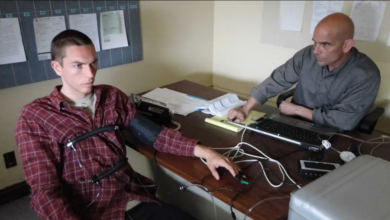The Role of Bariatric Surgeons in Helping You Maintain Long-Term Weight Loss

Bariatric surgery is a life-changing procedure designed to help individuals achieve significant and lasting weight loss. However, the journey does not end after the operation — long-term success requires ongoing support, expert guidance, and a tailored care plan. Working closely with a bariatric surgeon in Tijuana ensures that you receive the professional oversight needed to maintain your results, address challenges, and build a healthier lifestyle for years to come. These specialists play a critical role in helping patients navigate both the physical and emotional aspects of life after surgery.
Post-Surgery Follow-Up and Monitoring
Regular follow-up visits allow your surgeon to monitor your progress, detect potential complications early, and adjust your care plan as needed. These appointments are essential for tracking weight loss, nutritional health, and overall well-being. Surgeons can identify issues such as nutrient deficiencies or changes in metabolic health before they become serious concerns, ensuring your recovery stays on track.
Nutritional Guidance and Support
Proper nutrition is crucial after bariatric surgery to maintain health and achieve long-term results. A skilled surgeon will often work with a dietitian to provide ongoing education on balanced meals, portion control, and nutrient-rich foods. This collaboration helps patients develop sustainable eating habits while avoiding common post-surgery pitfalls like malnutrition or weight regain. As outlined in the questions to ask your bariatric surgeon, understanding how your diet will evolve over time is key to ensuring success.
Lifestyle Coaching for Lasting Change
While the surgery itself initiates weight loss, maintaining it depends on lifestyle changes. Bariatric surgeons offer guidance on integrating exercise routines, stress management, and healthy daily habits into your life. They help set realistic goals, encourage accountability, and provide strategies for overcoming setbacks. This holistic approach ensures that patients are equipped not only physically but also mentally for the long-term journey.
Addressing Emotional and Psychological Needs
Weight loss surgery can bring emotional challenges, including body image adjustments and managing expectations. Surgeons often collaborate with mental health professionals to provide counseling and support throughout recovery. This helps patients address underlying factors contributing to weight gain and equips them with coping strategies to maintain progress. Understanding the skills that make a bariatric surgeon stand out can help you choose a provider who offers comprehensive care, including emotional well-being.
The Importance of Patient Education
An often-overlooked role of a bariatric surgeon is empowering patients with knowledge about their health and the changes their body will undergo. From understanding post-surgical anatomy to recognizing early signs of nutritional deficiencies, education helps patients take an active role in their recovery. Surgeons who prioritize patient education foster confidence, self-sufficiency, and a better ability to make informed decisions that promote lasting results.
Long-Term Commitment to Your Health
Bariatric surgeons understand that maintaining weight loss is an ongoing process. Their role extends beyond the operating room; they serve as a partner in your health journey, offering tools, guidance, and encouragement to help you sustain your results. Regular check-ins, continuous education, and open communication form the foundation of long-term success.
Conclusion
A bariatric surgeon’s expertise is vital not only for performing the procedure but also for ensuring patients thrive afterward. Through personalized monitoring, nutritional support, lifestyle coaching, and emotional care, they empower patients to maintain lasting results and improve their overall quality of life. Partnering with the right surgeon means having a trusted advocate in your corner for the long run.





